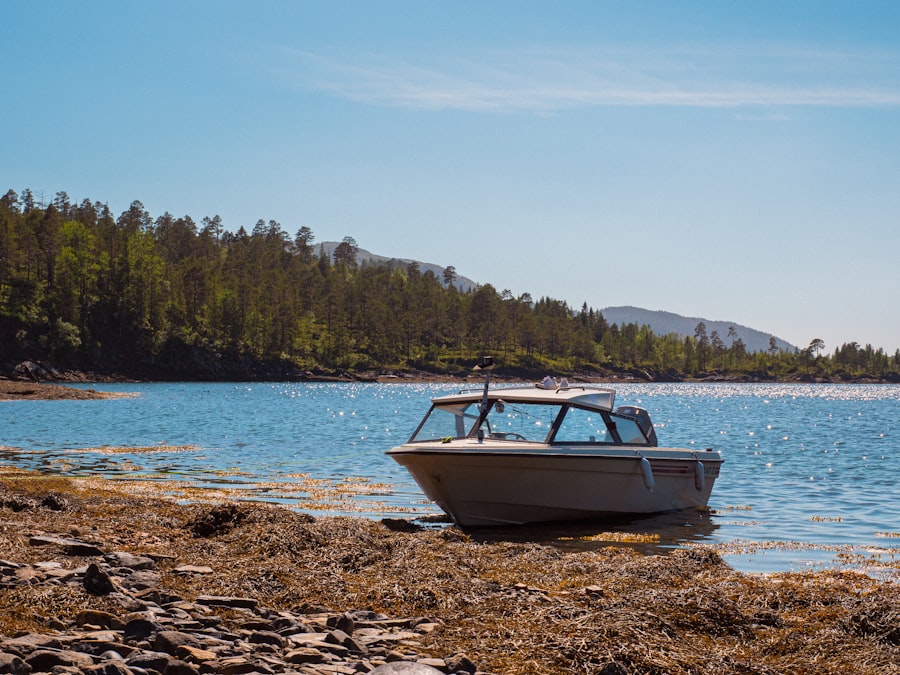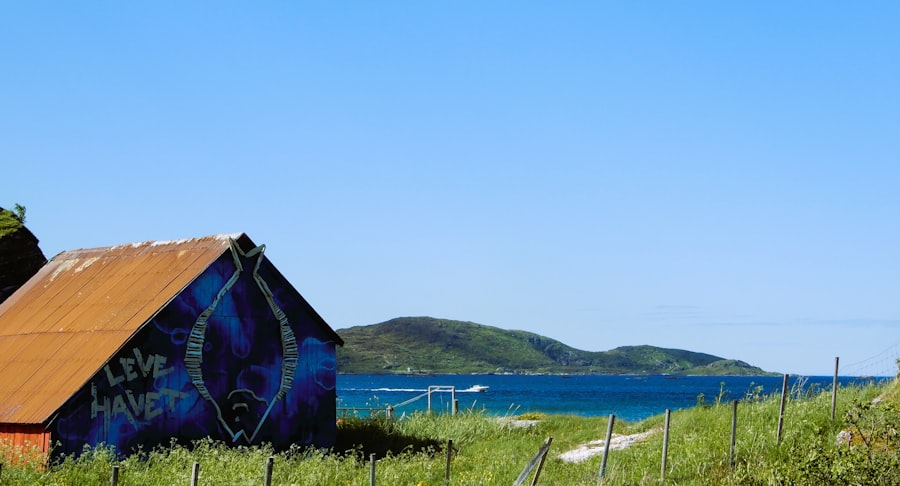Navigating the Norwegian utility system can be a daunting task for newcomers, especially those unfamiliar with the country’s regulations and practices. Norway’s utility framework is designed to provide residents with essential services such as electricity, gas, water, and waste management. The system is largely regulated by the government, ensuring that residents have access to reliable and efficient services.
Understanding how these utilities operate is crucial for anyone planning to relocate to Norway, as it will help streamline the transition and avoid potential pitfalls. One of the key aspects of the Norwegian utility system is its emphasis on sustainability and environmental responsibility. Norway is renowned for its commitment to renewable energy sources, particularly hydropower, which accounts for a significant portion of the country’s electricity generation.
This focus on green energy not only benefits the environment but also contributes to lower utility costs for consumers. As you delve into the intricacies of the utility system, it is essential to appreciate how these elements intertwine to create a robust and eco-friendly infrastructure. Book Your 1-Hour Relocation Strategy Session
Summary
- The Norwegian utility system is highly regulated and provides reliable services to residents.
- When researching utility providers in Norway, consider factors such as customer service, pricing, and sustainability initiatives.
- Setting up electricity and gas services in Norway may require contacting multiple providers and providing necessary documentation.
- Water and sewage services in Norway are typically managed by local municipalities, with fees based on usage.
- Waste management and recycling in Norway is taken seriously, with strict regulations and a focus on sustainability.
- Internet and phone services in Norway are widely available, with various providers offering different packages and speeds.
- Understanding utility bills and payment methods in Norway is important, as they may vary between providers and services.
- Energy efficiency and conservation tips for your home in Norway can help reduce utility costs and environmental impact.
- In the event of utility emergencies in Norway, contact the appropriate provider or emergency services for assistance.
- When transferring or cancelling utility services in Norway, be sure to follow the necessary procedures and provide adequate notice.
- Additional tips for managing utilities in Norway include setting up automatic payments, monitoring usage, and staying informed about regulations and updates.
Researching Utility Providers in Norway
Before setting up your utilities in Norway, it is vital to conduct thorough research on the various providers available in your area. The country boasts a competitive market for electricity and gas services, with numerous companies vying for customers. Each provider offers different pricing plans, contract lengths, and customer service options, making it essential to compare them carefully.
Websites that aggregate information on utility providers can be particularly helpful in this regard, allowing you to evaluate your options based on factors such as price, reliability, and customer satisfaction. In addition to electricity and gas providers, it is also important to investigate local water and sewage services. In most cases, these services are managed by municipal authorities, which means that your options may be limited compared to other utilities.
However, understanding the specific regulations and fees associated with water services in your municipality will help you budget effectively and avoid any surprises down the line. Engaging with local forums or expat groups can provide valuable insights into the best providers and practices in your area.
Setting Up Electricity and Gas Services

Once you have identified suitable utility providers, the next step is to set up your electricity and gas services. This process typically involves contacting your chosen provider directly, either through their website or by phone. You will need to provide personal information such as your name, address, and identification details.
Additionally, it is advisable to have your moving date handy, as this will help ensure a seamless transition of services. In Norway, many utility providers offer online account management systems that allow you to monitor your usage and manage payments easily. This digital approach not only simplifies the setup process but also provides ongoing convenience as you settle into your new home.
Be sure to inquire about any initial fees or deposits that may be required when establishing your account, as these can vary significantly between providers.
Water and Sewage Services in Norway
Water and sewage services in Norway are generally managed at the municipal level, meaning that each locality has its own regulations and pricing structures. Most municipalities provide clean drinking water and efficient sewage systems, ensuring that residents have access to essential services without significant hassle. It is important to familiarise yourself with your local water provider’s policies regarding billing cycles, water quality reports, and any potential restrictions on water usage during dry spells.
In addition to understanding the basic services provided by your municipality, it is also wise to be aware of any additional fees that may apply. For instance, some areas may charge extra for wastewater treatment or stormwater management. By being informed about these potential costs upfront, you can better manage your household budget and avoid unexpected expenses related to water services.
Waste Management and Recycling in Norway
Norway takes waste management and recycling seriously, with a strong emphasis on sustainability and environmental protection. Each municipality has its own waste management system, which typically includes separate collections for general waste, recyclables, and organic materials. Familiarising yourself with your local waste disposal guidelines is crucial for ensuring compliance and contributing positively to the environment.
Recycling in Norway is not only encouraged but often mandated by law. Residents are expected to sort their waste into designated categories before disposal. Many municipalities provide clearly marked bins for different types of waste, making it easier for residents to participate in recycling efforts.
Additionally, some areas offer deposit schemes for certain beverage containers, incentivising residents to return them for recycling rather than discarding them. Understanding these practices will not only help you adapt to life in Norway but also foster a sense of community responsibility.
Internet and Phone Services in Norway

In today’s digital age, having reliable internet and phone services is essential for both personal and professional life. Norway boasts a well-developed telecommunications infrastructure, with several providers offering a range of packages tailored to different needs. When researching internet options, consider factors such as speed, data limits, and contract terms.
Many providers offer bundled packages that include both internet and mobile phone services, which can be a cost-effective solution for newcomers. Setting up internet and phone services typically involves contacting your chosen provider directly or visiting their website. You will need to provide personal information similar to what was required for utilities.
Installation times can vary depending on the provider and your location; therefore, it is advisable to schedule this service well in advance of your move-in date. Additionally, be sure to inquire about any promotional offers or discounts that may be available for new customers.
Understanding Utility Bills and Payment Methods
Once you have established your utility services in Norway, it is important to understand how billing works and what payment methods are available. Utility bills are usually issued monthly or bi-monthly, depending on the provider. These bills typically include detailed information about your usage, rates applied, and any additional fees incurred during the billing period.
Familiarising yourself with this information will help you monitor your consumption and identify any discrepancies that may arise. In terms of payment methods, most utility providers offer various options for settling bills. Common methods include direct debit from a bank account, online payments through the provider’s website, or traditional bank transfers.
Some providers may also accept credit card payments or offer mobile payment solutions for added convenience. It is advisable to choose a payment method that aligns with your financial habits while ensuring timely payments to avoid late fees or service interruptions.
Energy Efficiency and Conservation Tips for Your Home
As energy prices fluctuate and environmental concerns grow more pressing, adopting energy-efficient practices in your home can lead to significant savings while contributing positively to the planet. In Norway, where heating costs can be substantial during the long winter months, implementing energy conservation measures is particularly important. Simple steps such as using energy-efficient appliances, sealing drafts around windows and doors, and utilising programmable thermostats can make a noticeable difference in your energy consumption.
Additionally, consider investing in renewable energy solutions such as solar panels if feasible for your property. While the initial investment may be considerable, the long-term savings on energy bills can be substantial. Furthermore, many municipalities offer incentives or subsidies for homeowners who adopt green technologies, making it an even more attractive option.
By prioritising energy efficiency in your home, you not only reduce costs but also contribute to Norway’s commitment to sustainability.
Dealing with Utility Emergencies in Norway
Utility emergencies can occur unexpectedly, so being prepared is essential for any resident in Norway. Common emergencies may include power outages due to severe weather conditions or issues with water supply or sewage systems. In such situations, it is crucial to know how to respond effectively and whom to contact for assistance.
Most utility providers have dedicated emergency hotlines that operate 24/7; therefore, keeping this information readily accessible can save valuable time during a crisis. In addition to knowing whom to contact for emergencies, it is wise to familiarise yourself with local resources that can provide support during challenging situations. For instance, local community centres or municipal offices may offer assistance or guidance during widespread outages or other emergencies affecting multiple residents.
Being proactive in understanding these resources will empower you to handle utility emergencies with confidence.
Transferring or Cancelling Utility Services
If you find yourself moving within Norway or relocating abroad after establishing utility services, understanding how to transfer or cancel these services is crucial for a smooth transition. Most utility providers have specific procedures in place for transferring accounts from one address to another; typically involving notifying them of your move well in advance of your departure date. This allows them ample time to process your request and ensure that services are seamlessly transferred without interruption.
When cancelling utility services entirely—whether due to relocation or other reasons—be sure to follow the provider’s guidelines carefully. This often involves submitting a formal cancellation request along with any necessary identification details. Additionally, it is advisable to settle any outstanding bills before finalising the cancellation process to avoid complications later on.
Additional Tips for Managing Utilities in Norway
Managing utilities effectively in Norway requires diligence and awareness of local practices. One helpful tip is to regularly monitor your usage patterns through online account management tools provided by most utility companies. This not only helps you stay informed about your consumption but also allows you to identify trends that may indicate inefficiencies or areas where you can cut back on costs.
Furthermore, consider joining local community groups or forums where residents share tips and experiences related to utilities management in Norway. Engaging with others who have navigated similar challenges can provide valuable insights and support as you adapt to life in this beautiful country. To further enhance your understanding of managing utilities in Norway and ensure a smooth transition into your new life here, consider scheduling a One-Hour Strategy Session with the Norway Relocation Group.
Their expertise can provide tailored advice specific to your situation while addressing any concerns you may have about utilities or other aspects of relocating to Norway. This session could prove invaluable as you embark on this exciting journey!

